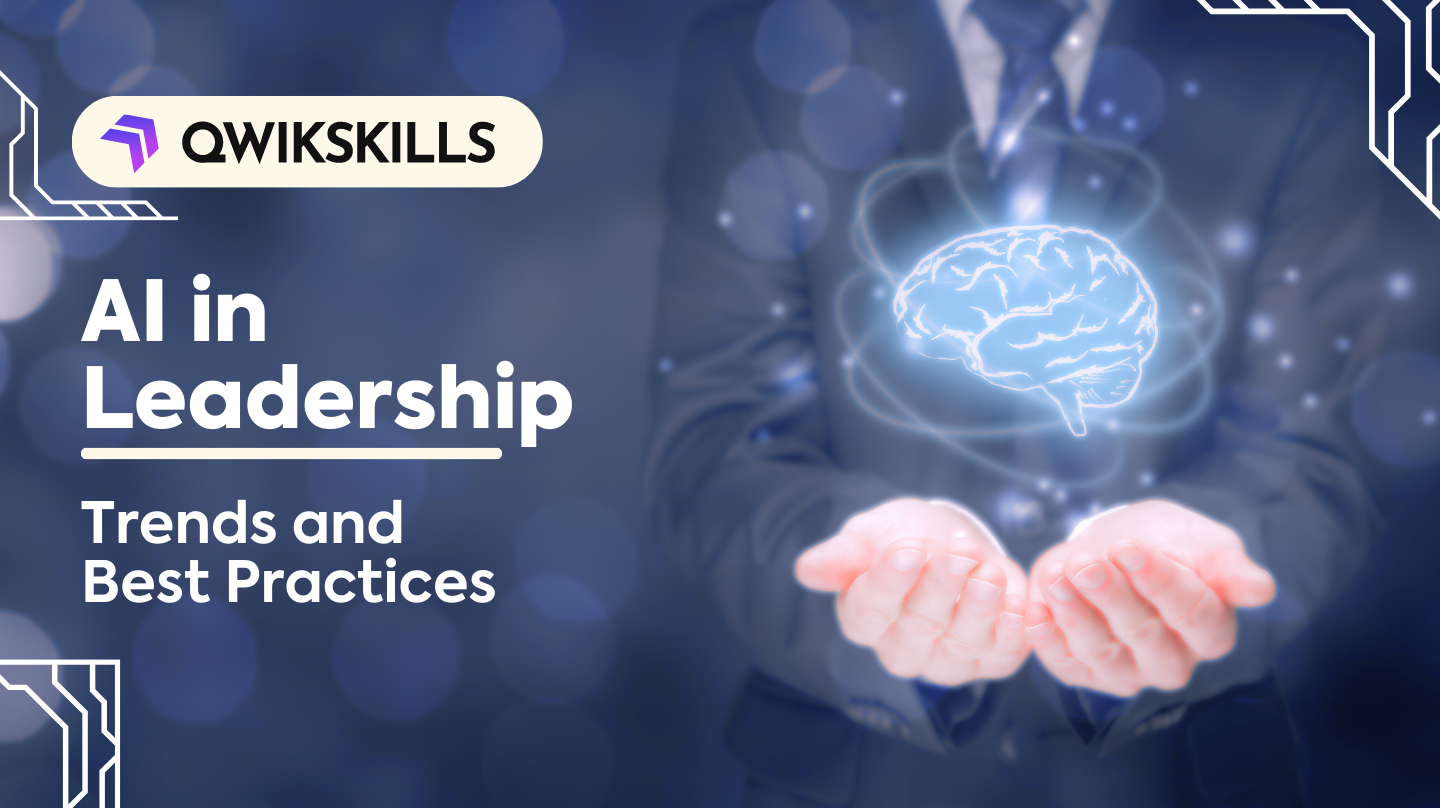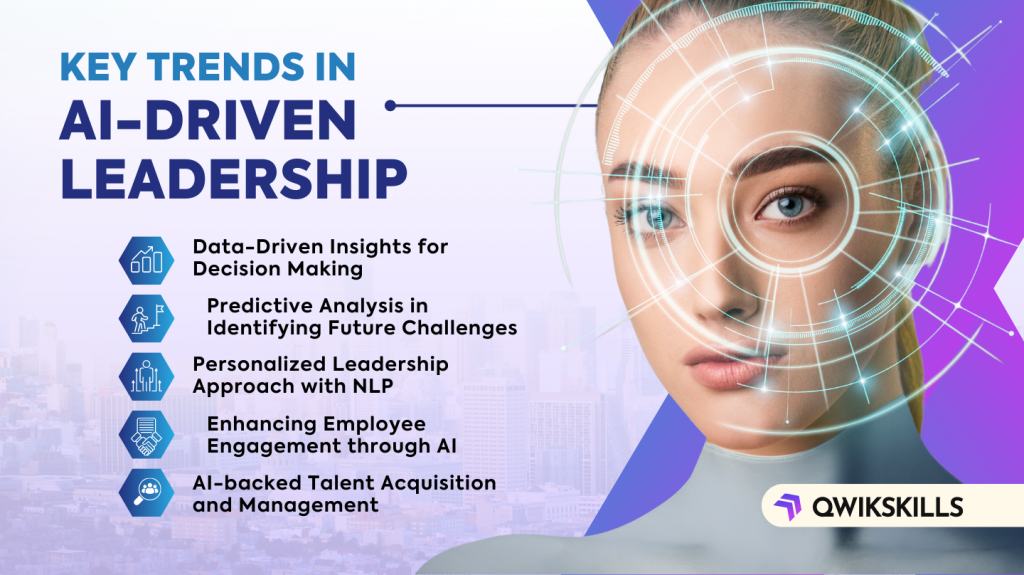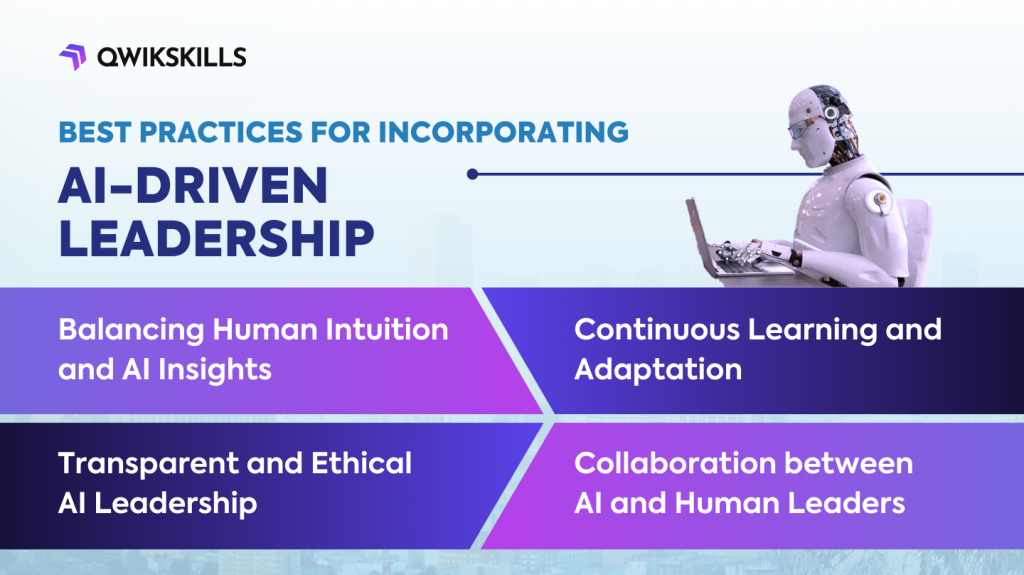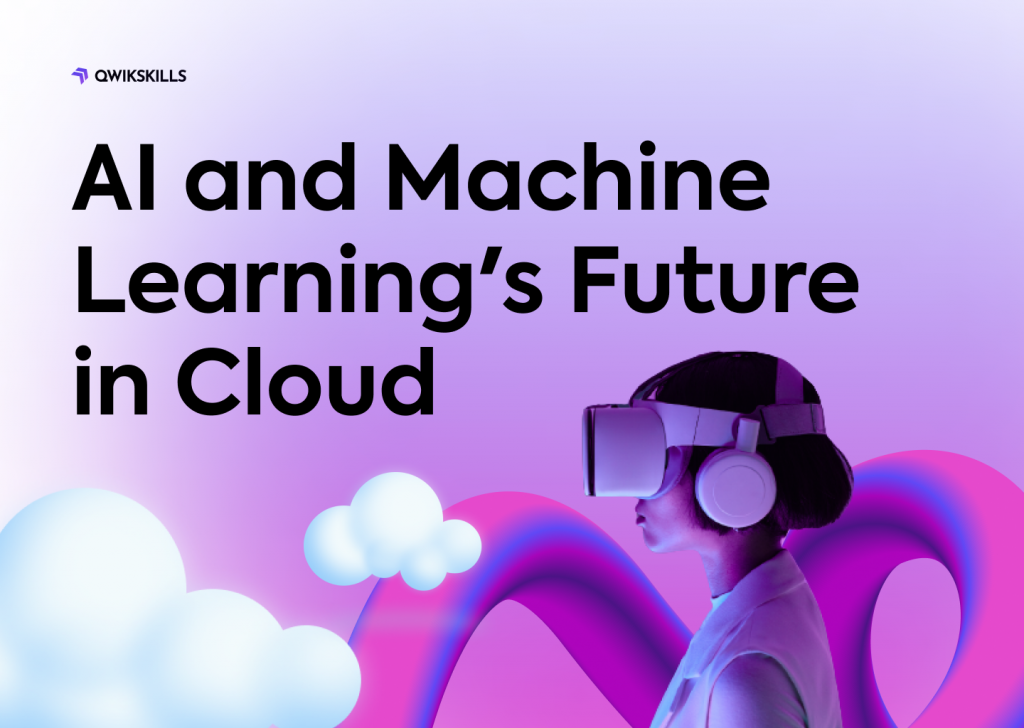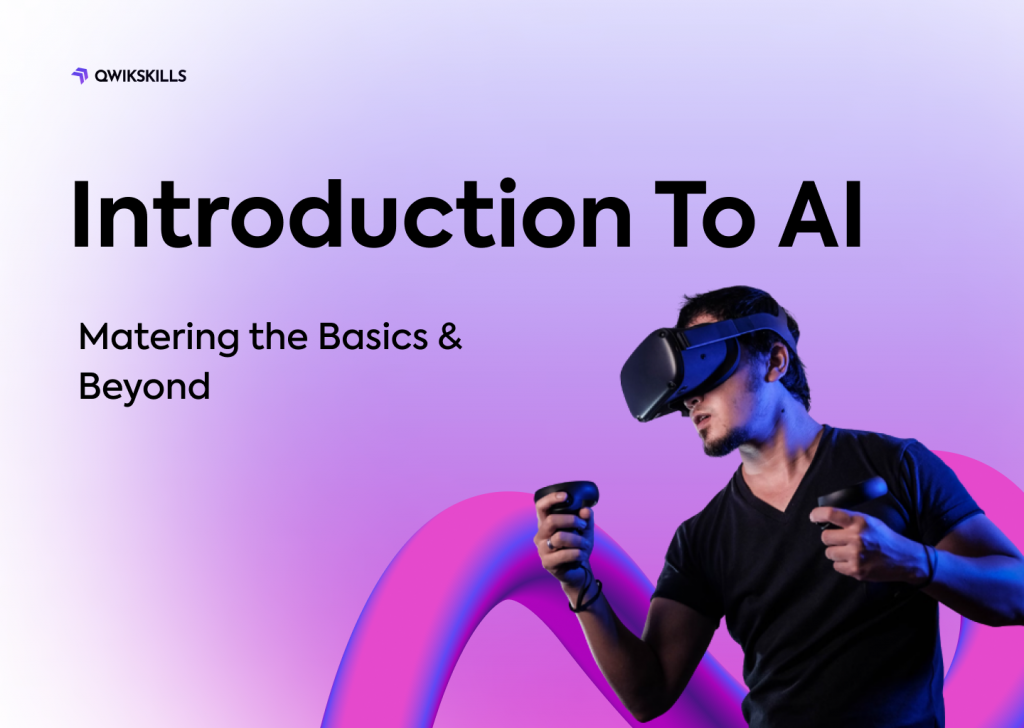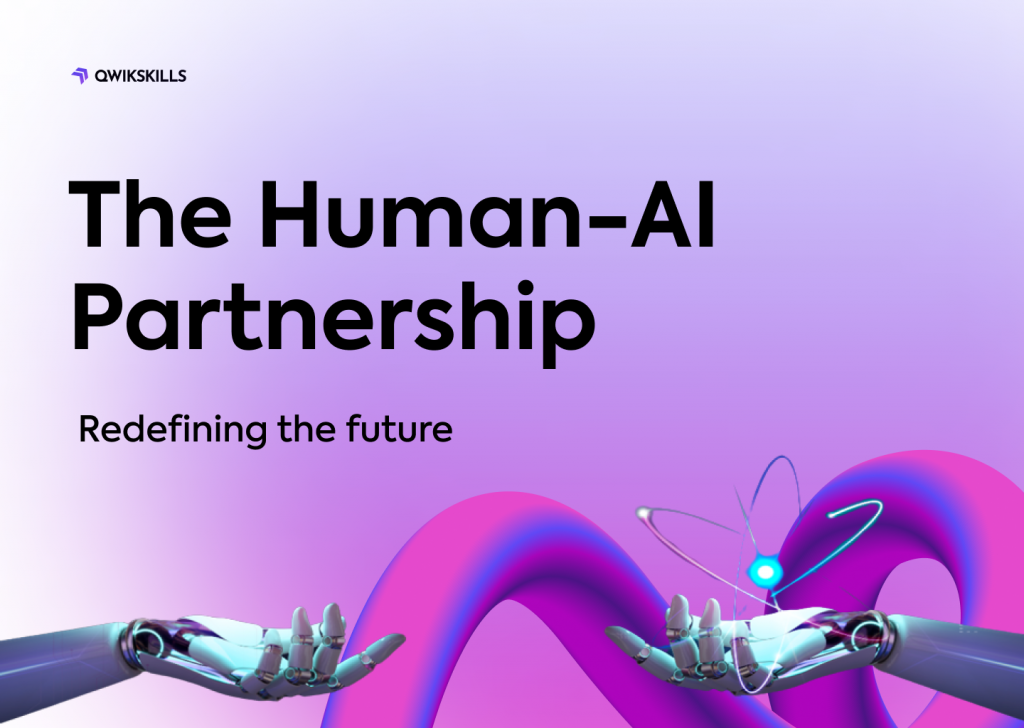In today’s rapidly evolving landscape, the integration of artificial intelligence, and AI in leadership practices has emerged as a transformative trend. AI’s computational prowess with human intuition is reshaping decision-making, redefining strategies, and fostering a more personalized and efficient approach to leadership. This article delves into the symbiotic relationship between AI and leadership, exploring trends that are redefining the domain and providing insights into best practices for harnessing AI’s potential while preserving the essence of human leadership.
Introduction
In an era characterized by data deluge and digital innovation, AI has permeated various facets of business operations. From optimizing supply chains to automating customer interactions, AI has played an indispensable role. However, its impact on leadership is particularly noteworthy. AI is transforming the way leaders gather insights, anticipate challenges, and engage with their teams.
Understanding AI in Leadership
AI, in essence, refers to the simulation of human intelligence processes by machines. Its relevance in leadership lies in its ability to process vast amounts of data swiftly and derive meaningful patterns and insights. Interestingly, AI complements human leadership qualities rather than supplanting them. It’s not a replacement for leaders, but rather a strategic ally that empowers them to make more informed decisions.
Key Trends in AI-driven Leadership
Data-Driven Insights for Decision Making
The heart of AI’s contribution to leadership lies in its capacity to process and analyze colossal datasets, providing leaders with actionable insights. Take, for instance, a retail company utilizing AI to analyze customer preferences and behaviors. This data-driven approach enables leaders to tailor marketing strategies, optimize inventory, and enhance customer experiences. It’s akin to navigating a maze with a GPS that highlights the most efficient path.
Predictive Analysis in Identifying Future Challenges
AI’s predictive capabilities are redefining the way leaders identify and mitigate challenges. By analyzing historical data, AI models can forecast potential bottlenecks and risks. Imagine a project manager using AI to predict potential roadblocks in a complex project, allowing them to proactively allocate resources and mitigate risks. It’s akin to weather forecasts that help us prepare for storms before they strike.
Personalized Leadership Approach with NLP
Natural Language Processing (NLP), a subset of AI, is revolutionizing how leaders understand and interact with their teams. By analyzing employee sentiments and feedback, NLP enables leaders to tailor their communication styles and approaches. This fosters a more personalized and empathetic leadership style that resonates with individual team members. It’s like a coach who understands each player’s strengths and motivates them accordingly.
Enhancing Employee Engagement through AI
AI-powered tools are now enabling leaders to gauge employee engagement and satisfaction in real-time. Sentiment analysis, for instance, helps leaders identify disengagement early on and take corrective measures. Leaders can then implement strategies to improve workplace morale and create an environment where employees thrive. It’s akin to a conductor sensing the mood of an orchestra and adjusting their cues for a harmonious performance.
AI-backed Talent Acquisition and Management
Recruitment and talent management are being streamlined by AI, optimizing processes and reducing biases. AI algorithms can sift through resumes, match candidates with job requirements, and even predict candidates’ success in specific roles. This not only accelerates the recruitment process but also ensures a more diverse and qualified workforce. It’s like a talent scout identifying future sports stars based on their potential.
Best Practices for Incorporating AI in Leadership
Balancing Human Intuition and AI Insights
While AI can provide data-driven insights, human intuition remains irreplaceable. Effective leaders strike a balance between AI’s analytical prowess and their own gut instincts. For instance, AI can identify trends in customer behavior, but a leader’s intuition might help interpret those trends within a broader context. It’s like a chess player combining calculated moves with gut feelings for a winning strategy.
Continuous Learning and Adaptation
The world of AI is ever-evolving, and leaders must keep up to remain relevant. Regular upskilling and embracing new technologies are crucial for effective leadership in the AI era. Just as a seasoned sailor adjusts their sails to changing winds, leaders need to adapt their strategies to harness the benefits of AI and navigate unforeseen challenges.
Transparent and Ethical AI Leadership
AI decisions should be transparent and aligned with ethical standards. Leaders need to ensure that AI-driven choices are explainable and fair. This not only builds trust but also safeguards against potential biases. It’s like a referee making fair and transparent decisions in a game, upholding the principles of integrity.
Collaboration between AI and Human Leaders
The real potential of AI in leadership emerges when it collaborates seamlessly with human leaders. AI can handle data analysis, leaving leaders free to focus on vision, strategy, and interpersonal connections. Think of AI as a co-pilot, handling navigational calculations while the human leader steers the ship and makes critical decisions based on the broader context.
Future Outlook: AI and the Evolving Landscape of Leadership
The journey of AI in leadership is only beginning. Over the next decade, AI is poised to play an even more intricate role. Emerging technologies like emotion recognition AI might empower leaders to gauge team morale in real-time. As AI continues to evolve, it might even assist leaders in generating innovative ideas and solutions.
Semantically Similar FAQs
Can AI completely replace human leaders?
AI is not designed to replace human leaders, but rather to enhance their capabilities. AI can provide data-driven insights and support decision-making, but human intuition, creativity, and empathy remain essential qualities that AI cannot replicate.
What are the potential risks of relying heavily on AI in leadership?
While AI offers valuable insights, overreliance on AI could lead to the neglect of human factors and contextual nuances. Additionally, biases in AI algorithms could perpetuate inequalities. Striking a balance between AI and human judgment is crucial to mitigate these risks.
How can small businesses benefit from AI-powered leadership strategies?
Small businesses can leverage AI to streamline operations, make data-driven decisions, and enhance customer experiences. AI can help them compete with larger enterprises by offering efficient resource allocation and personalized interactions.
Are there industries where AI’s role in leadership is more pronounced?
Industries that heavily rely on data analysis and customer insights, such as marketing, finance, and e-commerce, often find AI’s role in leadership more pronounced. However, AI’s applicability extends to various sectors as technology continues to evolve.
What skills should future leaders develop to work effectively with AI?
Future leaders should cultivate a blend of analytical thinking, emotional intelligence, and adaptability. They need to understand how AI operates, interpret AI-generated insights, and integrate them with their own strategic vision.
How does AI impact the decision-making dynamics of a leadership team?
AI provides leaders with data-backed insights that facilitate informed decision-making. However, it’s essential for leadership teams to interpret AI-generated information, critically assess its implications, and consider broader contextual factors before making decisions.
What are the ethical concerns related to AI integration in leadership?
Ethical concerns include potential biases in AI algorithms, the transparency of AI-driven decisions, and the displacement of human roles. Leaders must ensure fairness, accountability, and responsible AI usage to maintain trust and uphold ethical standards.
Conclusion
Incorporating AI into modern leadership is not about replacing human leaders but amplifying their abilities. By leveraging AI’s data-processing capabilities, predictive insights, and personalized approaches, leaders can make better-informed decisions, foster engagement, and optimize talent management. The future of leadership is a harmonious partnership between human intuition and AI insights, where leaders navigate complexity with newfound precision.
Ready to lead with the power of AI? Elevate your leadership game with QwikSkills. Explore AI-driven courses to master the art of balancing intuition and data, fostering engagement, and thriving in the evolving landscape. Unleash your potential today!

